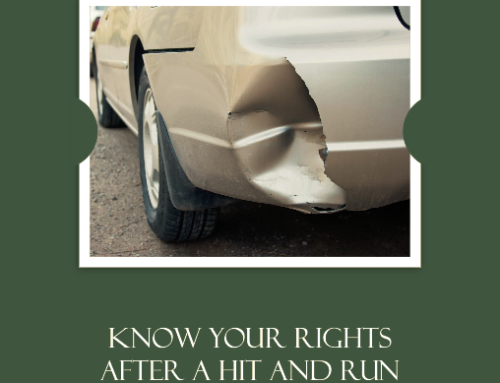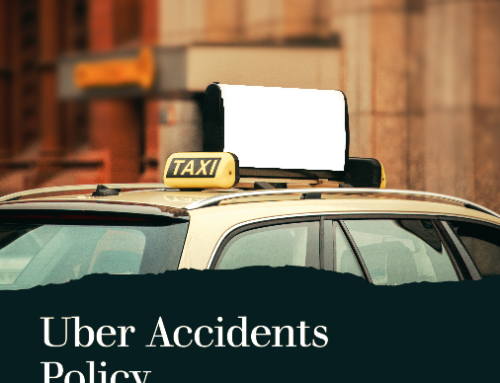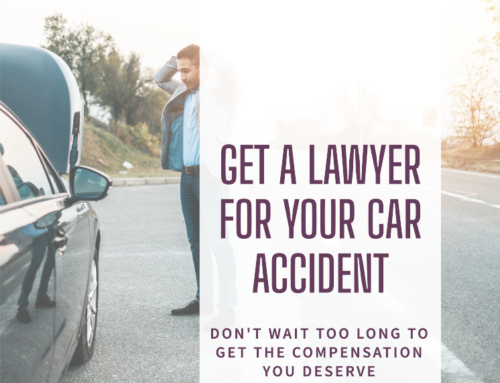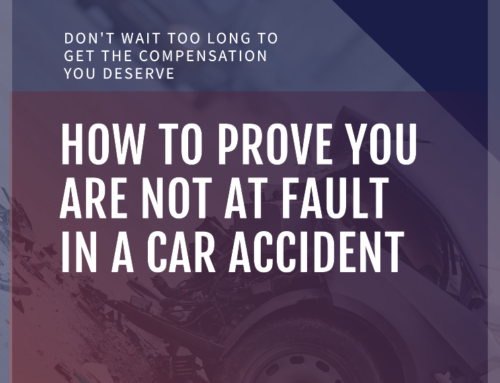Getting involved in a car accident can be a stressful and overwhelming experience. However, hiring a lawyer is not always necessary when settling a car accident claim. In this blog post, we will explore the process of settling a car accident claim without a lawyer and provide you with useful tips and information to help you navigate the process successfully.
Car Accident Claim Settlement Process
Settling a car accident claim involves a series of steps that are important to understand. The first step is to gather all relevant information about the accident, including the parties’ date, time, location, and contact details. This information will be crucial when filing your claim.
Once you have the necessary information, the next step is to notify your insurance company about the accident. They will guide you through the claims process and provide the required forms and information to initiate your claim. Be sure to provide accurate and detailed information about the accident and any injuries you sustained.
After you’ve initiated the claim, an insurance adjuster will be assigned to your case. The adjuster will investigate the accident, evaluate the damages, and assess liability. Communicating effectively with the adjuster is essential, providing any additional information or documentation they may request. However, always remember that the adjuster represents the insurance company’s interests, so protecting your rights is important.
Knowing Your Rights and Responsibilities During the Process
As a claimant, you must know your rights and responsibilities during the car accident claim settlement process. Understanding your rights helps you advocate for yourself and ensures that you receive a fair settlement. Some key rights include the right to compensation for damages and injuries caused by the accident and the right to consult with legal counsel if needed.
On the other hand, you also have specific responsibilities during the process. These may include reporting the accident promptly, cooperating with your insurance company and the other party’s insurance company, and providing accurate and truthful information about the accident and your injuries.
Familiarizing Yourself with the Relevant Laws and Regulations
Each jurisdiction has its own laws and regulations governing car accident claims. Familiarizing yourself with these laws is crucial to ensure you follow the proper procedures and meet legal requirements. Some common areas to focus on include the statute of limitations (the time limit for filing a claim), fault determination rules, and any specific insurance coverage and claims regulations.
By familiarizing yourself with the relevant laws and regulations, you can effectively navigate the car accident claim settlement process and ensure that you take the appropriate steps to protect your rights. If you’re unsure about any legal aspects, it’s always advisable to consult with an attorney who specializes in personal injury law to get proper guidance and support.
Remember, understanding the steps involved in settling a car accident claim, knowing your rights and responsibilities, and being aware of the relevant laws and regulations will empower you to navigate the process more confidently and increase your chances of achieving a fair settlement.
Dealing with Insurance Companies After a Car Accident:
After a car accident, you’ll need to navigate the process of dealing with insurance companies. This can be a critical step in getting the compensation you deserve for any damages or injuries sustained. Here are three key aspects to consider:
Reporting the Accident to Your Insurance Company Promptly
After the accident, it’s important to report the incident to your insurance company immediately. Contact your insurance provider and provide them with all the necessary details, including the date, time, location, and parties involved. Be sure to provide an accurate and detailed account of what happened. Prompt reporting helps initiate the claims process promptly, allowing your insurance company to start investigating and assessing the damages.
Communicating Effectively with Insurance Adjusters
Once you’ve reported the accident, an insurance adjuster will be assigned to your case. The adjuster’s role is to investigate the accident, assess the damages, and determine liability. Effective communication with the adjuster is essential during this stage. Be responsive to their inquiries, provide any additional information or documentation they request, and keep them updated on any developments related to your claim. However, always remember that the adjuster represents the insurance company’s interests, so protecting your rights and interests is important throughout the process.
Understanding the Claims Process and Policy Coverage
To navigate the process effectively, it’s important to understand the claims process and your insurance policy coverage. Review your policy to know what types of coverage you have, such as liability, collision, or personal injury protection. Familiarize yourself with each coverage’s specific conditions, limitations, and deductibles. This knowledge will help you understand what expenses and damages may be eligible for compensation and ensure you receive the appropriate benefits.
Timeframe for Settling a Car Accident Claim Without a Lawyer
When it comes to the timeframe for settling a car accident claim without a lawyer, it can vary depending on several factors. While some claims can be resolved quickly, others may take longer to reach a settlement. Here are some factors that can influence the timeframe:
Understanding the Typical Timeline for Settling a Claim
When settling a car accident claim without a lawyer, it’s important to have a realistic understanding of the typical timeframe involved. The duration of the settlement process can vary depending on various factors, such as the case’s complexity, the involved parties’ cooperation, and the insurance company’s efficiency. On average, a straightforward car accident claim can take a few weeks to several months to settle.
Factors that Can Affect the Duration of the Settlement Process
Several factors can impact the duration of the settlement process. One key factor is the extent of injuries and damages involved in the accident. More severe injuries or complex medical treatments may require additional time for evaluation and documentation. Additionally, if liability is disputed or there are challenges in determining fault, the resolution may take longer as investigations and evidence are gathered. Furthermore, the efficiency of communication and cooperation between the parties involved, including the insurance company, can influence the speed of the settlement process.
Tips for Expediting the Resolution of Your Claim
While the settlement process can take time, there are steps you can take to expedite the resolution of your claim. Firstly, ensure you promptly report the accident to your insurance company and provide all necessary information and documentation. This helps initiate the claims process and prevents unnecessary delays. Additionally, be proactive in providing any requested information or supporting evidence to the insurance adjuster. Promptly respond to their inquiries and keep open lines of communication.
Keeping organized records of all interactions, including emails, letters, and phone conversations, can also help streamline the process. A clear timeline of events and documentation of expenses or losses incurred can strengthen your position during negotiations.
Challenging the Other Driver’s Fault in a Car Accident Claim
Gathering strong evidence is crucial when challenging the other driver’s fault in a car accident claim. Start by collecting as much information as possible about the accident scene. Take photographs of the vehicles involved, visible damage, skid marks, road conditions, and traffic signs or signals. Also, gather statements from witnesses who saw the accident unfold. Their testimonies can provide additional perspectives and support your version of events.
Gather any available documentation, such as police reports, medical records, and repair estimates. These documents can help establish the sequence of events and demonstrate the other driver’s negligence or responsibility for the accident.
Obtaining Accident Reconstruction Reports, if Necessary
In some cases, it may be necessary to obtain accident reconstruction reports to challenge the other driver’s fault. Accident reconstruction experts use scientific methods and data analysis to recreate the accident scene and determine factors like speed, vehicle positions, and the cause of the accident. These reports can provide a more detailed and unbiased analysis of the events, which can be invaluable in proving the other driver’s liability.
Consult with your insurance company or a personal injury attorney to determine if obtaining an accident reconstruction report is necessary for your case. They can guide you through the process and help you understand its potential impact on disputing the other driver’s fault.
Presenting the Evidence and Building a Strong Case
Once you have gathered all the necessary evidence, it’s essential to present it effectively to challenge the other driver’s fault. Organize your evidence clearly and logically, highlighting key points that support your case. Prepare a comprehensive statement detailing your version of events and how the evidence aligns with it.
When communicating with the insurance company or legal representatives, clearly and confidently articulate your position, referring to your collected evidence. Be prepared to negotiate and counter any arguments or evidence the other party presents. If needed, consult a personal injury attorney specializing in car accident cases. They can guide building a strong case and advocating for your rights.
Challenging the other driver’s fault requires a thorough and strategic approach. By gathering compelling evidence, considering accident reconstruction reports if necessary, and presenting your case effectively, you increase your chances of successfully disputing the other driver’s fault and obtaining the compensation you deserve.
Common Mistakes When Handling a Car Accident Claim Independently
One common mistake people make when handling a car accident claim independently is failing to seek medical attention immediately after the accident. Even if you don’t believe you have suffered any major injuries, getting a medical evaluation is crucial. Some injuries, such as whiplash or internal injuries, may not be immediately apparent but can worsen over time. By seeking medical attention promptly, you prioritize your health and well-being and establish a documented record of any injuries sustained, which can strengthen your claim.
Providing Recorded Statements Without Proper Legal Guidance
Another mistake to avoid is providing recorded statements to insurance adjusters without proper legal guidance. Insurance adjusters may try to gather information from you that could be used against you to minimize the settlement offer. It’s important to remember that they are working in the insurance company’s best interest, not necessarily in your best interest. Before providing any recorded statements, consult a personal injury attorney who can advise you on what information to disclose and help protect your rights throughout the claims process.
Settling Too Quickly or Accepting a Low Settlement Offer
Settling too quickly or accepting a low settlement offer is a common pitfall when handling a car accident claim independently. Insurance companies may try to offer a quick settlement in hopes of resolving the claim for less than it’s worth. However, it’s essential to carefully evaluate the true extent of your damages, including medical expenses, property damage, lost wages, and pain and suffering. Consider consulting with an attorney who can assess the value of your claim and negotiate on your behalf to ensure you receive fair compensation.
Failure to Document and Preserve Evidence
Neglecting to document and preserve evidence is another mistake to avoid. It’s crucial to gather and keep all relevant evidence related to the accident, such as photographs, witness statements, police reports, and medical records. Failure to do so may weaken your claim and hinder your ability to prove liability or the extent of damages. Additionally, keep a record of all communication with the insurance company, including emails, letters, and phone conversations. This documentation can prove the discussions and agreements made throughout the claims process.
By avoiding these common mistakes, such as seeking immediate medical attention, consulting with an attorney before providing recorded statements, avoiding premature settlements, and diligently documenting evidence, you can better navigate the car accident claim process and increase your chances of achieving a fair and satisfactory outcome.
Legal Options if the Insurance Company Denies a Car Accident Claim:
If the insurance company denies your car accident claim, it’s crucial to review the reasons for the denial and understand your rights. Carefully examine the denial letter or communication from the insurance company to identify the specific grounds for their decision. Insurance companies may deny claims for various reasons, such as disputed liability, policy exclusions, or insufficient evidence. Familiarize yourself with the terms and conditions of your insurance policy to determine if the denial is justified or if you have valid grounds to challenge it.
Appealing the Denial and Providing Additional Evidence, if Applicable
If you believe the denial is unjustified or there is additional evidence that could support your claim, you may have the option to appeal the decision. Contact the insurance company to inquire about their appeal process and provide any additional evidence or documentation that strengthens your case. This could include medical records, expert opinions, witness statements, or other relevant information not previously submitted. Present your case clearly and persuasively, addressing the reasons for the denial and providing compelling evidence to support your claim.
Consulting with a Lawyer for Further Assistance, if Necessary
If the appeal process with the insurance company does not result in a favorable outcome, or if you encounter complex legal issues, it may be advisable to consult with a car accident lawyer who specializes in personal injury or insurance law. A lawyer can provide expert advice, assess the strength of your case, and guide you through the legal options available to you. They can help you understand the applicable laws and regulations, negotiate with the insurance company on your behalf, or even initiate legal proceedings if necessary.
Exploring Alternative Dispute Resolution or Filing a Lawsuit
In some cases, alternative dispute resolution methods, such as mediation or arbitration, may be available to resolve the dispute outside of court. These processes involve a neutral third party facilitating negotiations between you and the insurance company to settle. If these methods fail or are not applicable, filing a lawsuit may be the next step. Your attorney can guide you through the litigation process, representing your interests and advocating for a favorable outcome in court.
Remember that the legal options available to you may vary depending on your jurisdiction and the specific circumstances of your case. It’s important to consult a qualified attorney who can provide tailored advice based on your situation and help you navigate the complex legal landscape to resolve your denied car accident claim fairly.
Conclusion
Dealing with a car accident claim can be challenging and overwhelming, especially when handling it independently. However, you can navigate the process more confidently by understanding the steps involved in settling a claim, communicating effectively with insurance companies, avoiding common mistakes, and knowing your legal options.
Promptly reporting the accident to your insurance company, gathering evidence, and understanding your policy coverage are crucial steps in settling a claim. Effective communication with insurance adjusters and seeking legal guidance, when needed, can help protect your rights and ensure fair treatment.
Additionally, being aware of common mistakes, such as failing to seek immediate medical attention, providing recorded statements without legal guidance, settling too quickly, or accepting low settlement offers, can help you avoid potential pitfalls.





Leave A Comment